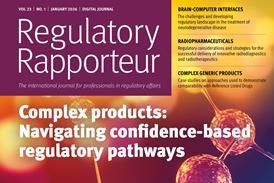Sandbox of trust: Regulated AI for health promotion and disease prevention

Up until the early 20th century, more people died during infancy than at any other stage of life.[1][2] Innovations in public health and medicine sparked a longevity revolution that saw significant and quick increases in life expectancy at birth, which was followed by reductions in early-age mortality and loss-of-life improvements at middle/older ages.[1][2]
This longevity revolution in human society is a treasured achievement but one that holds important implications for societal, health and economic policies. By 2042, a large increase in the global centenarian population is predicted (this being the 100-year anniversary of the beginning of the post-World War II baby boom).[2] As they age, people accumulate more medical conditions, which can require complex treatments and increase demand for healthcare services with ever decreasing budgets.[3] However, healthier, longer lives have potential benefits for the economy, and it is possible to offset the negative economic effects of an ageing society.[4]
This article explores how AI tools can analyse health data and help with disease prevention.
How to read this journal article
Thank you for visiting Regulatory Rapporteur. Journal articles are restricted to TOPRA members and registered users.
If you are a TOPRA member, or have already registered for limited free access, log in now (Option 1 below).
Not yet a member? You can either join TOPRA (Option 2 below) or register to view limited content for free (Option 3 below).



















